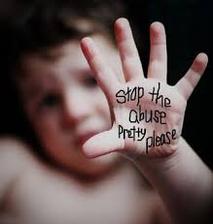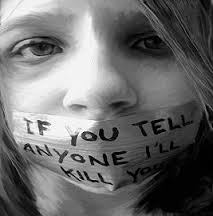
Child Sexual Abuse is defined as any sexual act between an adult and a minor or between two minors when one exerts power over the other; forcing, coercing, or persuading a child to engage in any type of sexual act, including non-contact acts such as exhibitionism, exposure to pornography, voyeurism, and communicating in a sexual manner by phone or Internet.
The physical act of being abused is painful and scary. No one wants to be exposed to this kind of crisis. However, the emotional component of sexual abuse causes the lasting and ongoing trauma.

Children who are sexually abused may:
· Blame themselves
· Feel guilty or dirty
· Feel hopeless
· Fear even healthy affection
· Feel angry and disconnected from others
· Feel they will never really be okay
· Feel powerless
· Live in secrecy
· Feel trapped
· Feel tremendous shame
· Hate themselves
· Feel fearful even in safe situations
· Startle easily
· Be distrustful
· Have nightmares
· Feel abandoned by parents and family (because no one helped them)
· Feel worthless
· Experience memories, smells, and sounds that are re-traumatizing
· Post-Traumatic Stress Disorder
· Anxiety
· Depression
· Substance Abuse
· Aggression, Opposition, Defiance
· Sexual Promiscuity
· HIV and Sexually Transmitted Diseases
· Teen Pregnancy
· Self-Inflicted Harm
· Delinquency
· Runaways
· Homelessness
· Decrease School Performance and Increased Drop-Out Rate
· Criminal Behavior and Violent Offenses
· Obesity
· Suicide
1) Learn the Facts – Over 90% of children who are sexually abused know their abuser and trusted him/her. Both men and women abuse children. Disclosures of sexual abuse are rarely false or fabricated. Find more facts at www.D2L.org
2) Minimize Opportunity – Eliminate or reduce isolated, one-on-one situations with minors to decrease risk for abuse (including with coaches, clergy, family members, and at sleep-overs).
3) Talk About It – Have open conversations with children about our bodies, sex, and boundaries. Use correct anatomical language of body parts so children can communicate accurately if they are being harmed.
4) Recognize the Signs – Know the signs of abuse to protect children from further harm.
a. anxiety, chronic stomach pain, or headaches
b. emotional and behavioral signals, including “too perfect” behavior, withdrawal, fear, depression, unexplained anger, and rebellion
c. nightmares, bed wetting, falling grades, cruelty to animals, bullying, being bullied, fire setting, running away, or self-harm
d. sexual behavior or language that is not age-appropriate
e. use of alcohol or drugs at an early age
f. physical signs (not common): bruising, bleeding, scabs around mouth, urinary tract infection, and STDs
5) React Responsibly – Understand how to respond to risky behaviors and/or suspicions and report sexual abuse.
a. Listen calmly and openly. Allow silence in the conversation so the child can take his/her time.
b. Don’t ask leading questions (such as, “Was it Bob?” or “Did he touch you here?”). Leading questions can confuse the child’s memory.
c. Ask open-ended questions (such as “What happened next?” or “You can tell me whatever you want.”
d. Support the child. Say things like “I believe you,” “What happened is not your fault,” “I’m proud of you for having the courage to tell me,” and “We will get the support you need to keep you protected.”
e. Report to police and child protective services. Your loyalty is to the child, not the violator (even if it is a spouse or family member!).
f. Take child to counselor. Re-traumatization is reduced significantly when child is able to receive appropriate, safe help from a professional counselor, in addition to support from family.
For more help understanding and learning how you can protect any child or youth you are in contact with, contact Bree for counseling and consultation. Counseling is vital for the child, and caretakers, to express their emotions and begin to heal.
Bree Winkler is a licensed professional counselor in Atlanta, GA.



 RSS Feed
RSS Feed